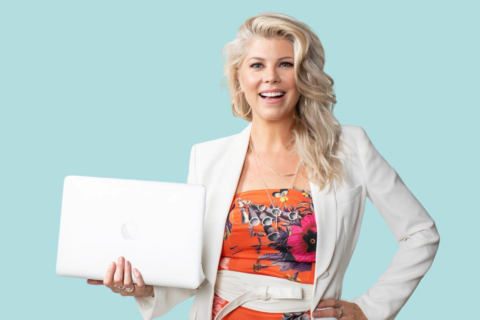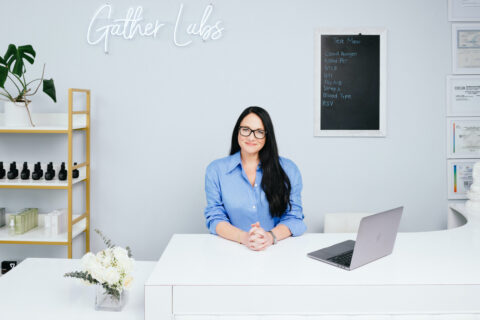In the startup world, economy is king. If you’ve landed a fundraising round, every penny is accountable to your investors. If you’re bootstrapping, then every penny is precious to you.
With dollars at a premium, the concept of “free” software is tempting, and indeed, ubiquitous. We’ve come to expect free and close-to-free access to everything from music to mobile games.
Yet beware. Everything has a cost, particularly in the digital world of apps and social media.
Everything has a cost

Think of the app or software you use most often. A preferred search engine? Maybe it’s email, a messaging app, social media, or a news app. It’s most likely also free to use and quite essential to your daily tasks as an entrepreneur. However, these chirpy, user-friendly, free products aren’t free to make and the companies that provide them (e.g., Google, Facebook, etc.) are not providing a service to users—at no small cost to themselves—without financial incentives to do so
The reality is: you are the “fee” for the usage of these products – you and the wealth of information you provide as you use apps and services.
Free apps generally rely on high user engagement and push notification bombing to ensure you’re spending as much time engaging with their apps (and ads) as often as possible. If you have an iPhone, you may have been unpleasantly surprised with your Screen Time report.
“Data isn’t the new oil, it’s more like sand.”
Our information is remarkably valuable to big tech companies. Unfortunately, it’s not all that financially valuable to us: data isn’t the new oil, it’s more like sand.
While our individual data may not be able to bring in much money, big companies with tens of millions of daily users can capture data by the terabyte, which is a much better business model. Companies have doubled down on free and freemium because they realized that doing so had a real and positive impact on their business. Yet whether or not we can make money from our data, it’s in our best interest to protect it.
Free apps and data privacy
Why do we expect SaaS services to be free? It may deal with the intangible quality of apps and software: when something isn’t physically manufactured and distributed, it can be difficult to see why it should cost money.
The issue can also lie in the history of open source apps and software: the beginning of the internet may have championed collaborative free tech, but what exists now seems less free, and more expensive than a simple financial fee in terms of what these technologies ask of you in exchange for use. The internet, as it stands today, seems more of a tightly governed place, controlled by a small number of sophisticated, powerful, and wealthy companies.
“The internet, as it stands today, seems more of a tightly governed place, controlled by a small number of sophisticated, powerful, and wealthy companies.”
Consumers are becoming increasingly aware that their data is analyzed by big software companies, and used to manipulate the way they behave to drive engagement.
An estimated 100 million people watched Netflix’s The Social Dilemma, and last year both American and European legislators started to take aim at large software companies on these grounds. Slowly, policies are changing to protect users.
Legislation has emerged in Europe and California in the form of GDPR and CCPA over recent years, and tech companies policies build it out further. Earlier this year, Apple launched app privacy labels to make it clear to end-users how their data is used.
Now that you know, what can you do?
Policy changes such as Apple’s are a step in the right direction. Yet, as Apple and Facebook continue to battle it out over user privacy, it’s clear that reclaiming ownership over our own data is not going to be easy.
Your role as an entrepreneur or consumer is to take a close look at the software you use. Once you know what you’re looking for, it’s not too hard to safeguard your privacy. If it’s not clear how an established app makes money, and if they’re not transparent about monetization, you can cautiously assume they’re making money through ads targeted tased on personal data.
Paid apps (especially subscription-based apps), have a transparent mechanism for making money; there’s no ambiguity as to how they’re planning to continue to pay employees and operational costs. Paid email services can protect your privacy by blocking spy trackers from accessing detailed read receipts (including your location and device). Not only that, maybe it’s simply time to shell out a little bit of cash and preserve privacy in exchange for the usefulness of apps in our daily world. This may be the biggest and smartest resource-saver of all.
Monetizing SaaS products sustainably
As the founder of technology enterprise Reincubate, I feel it is important to monetize products sustainably, without relying on the capture of user data. Over the years, our approach has been to use a mixture of a lifetime and subscription-based payments for products, seeking to deliver the fairest and most transparent option. I address our commitment by explaining the ethical focus of that approach.
“Privacy on the internet and on your devices might be a luxury. Those that want it may need to accept they have to pay for it.”
Privacy on the internet and on your devices might be a luxury. Those that want it may need to accept they have to pay for it. Alongside the enduring notion that we have of our right to free technology, there’s also a vague idea that technology should be morally good. It should serve customers ethically. Yet a virtuous company can’t sustain itself without funding, and ultimately that funding should come from its customers rather than a less transparent source.
The only way for companies to act virtuously is to deliver transparency around their revenue models and the source of income from which their business is sustained.
Aidan Fitzpatrick founded Reincubate in 2008 after building the world’s first iPhone data recovery tool, iPhone Backup Extractor. He’s led Reincubate to win the UK’s highest business honor twice, has spoken at Google on entrepreneurship, and is a graduate of the Entrepreneurs’ Organization’s Leadership Academy. His research has been cited in over 20 scholarly research works, He has served as CTO at Artspages, supplying Apple with music for the iTunes Store, and ultimately building the largest SAN in Norway at the time. In his work as European Development Manager at CNET, Fitzpatrick led technical teams across Europe (London, Munich, Paris) and key projects including the unification of EU publishing systems. He served as CTO at Wiggle through to its $230m breakout exit.
© YFS Magazine. All Rights Reserved. Copying prohibited. All material is protected by U.S. and international copyright laws. Unauthorized reproduction or distribution of this material is prohibited. Sharing of this material under Attribution-NonCommercial-NoDerivatives 4.0 International terms, listed here, is permitted.












